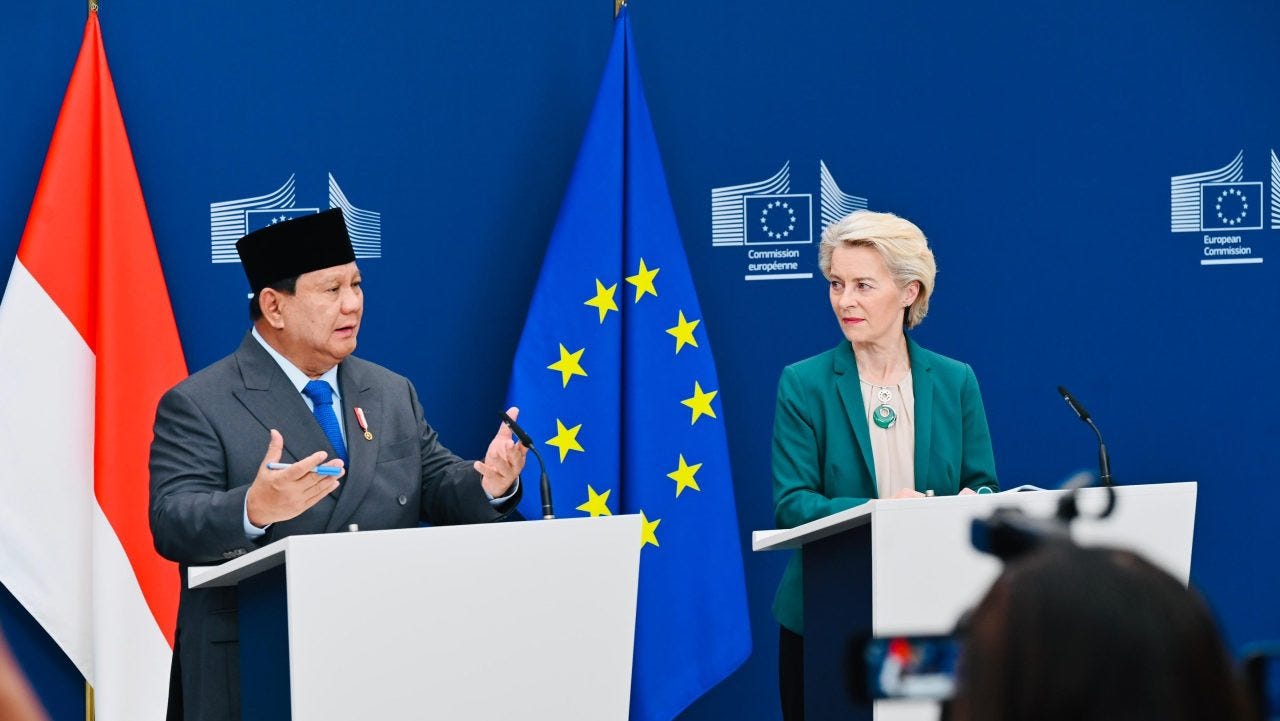Indonesia-EU CEPA: Securing IMEC Link, Building Block for Abraham Accords
By combining criticism of Gaza’s humanitarian crisis with strategic Gulf engagement, Prabowo balances domestic Muslim constituencies with Israel-aligned economic imperatives.
On 23 September, Indonesia and the European Union signed a Comprehensive Economic Partnership Agreement (CEPA), following the finalisation of terms in July. The agreement, the culmination of nearly a decade of negotiations, marks a pivotal moment in Southeast Asia’s geopolitical and economic landscape. It eliminates tariffs on up to 80% of Indonesian exports to the EU, potentially raising bilateral trade from $27 billion to over $44 billion annually. Yet the CEPA’s significance extends far beyond trade: it embeds Indonesia within the India–Middle East–Europe Economic Corridor (IMEC), linking Jakarta to Gulf states and European markets while aligning with broader Western security architectures. This integration, provisionally connected to Israeli Prime Minister Benjamin Netanyahu’s “Gaza 2035” reconstruction blueprint, could position Indonesia as the first Southeast Asian participant in the Abraham Accords framework.





